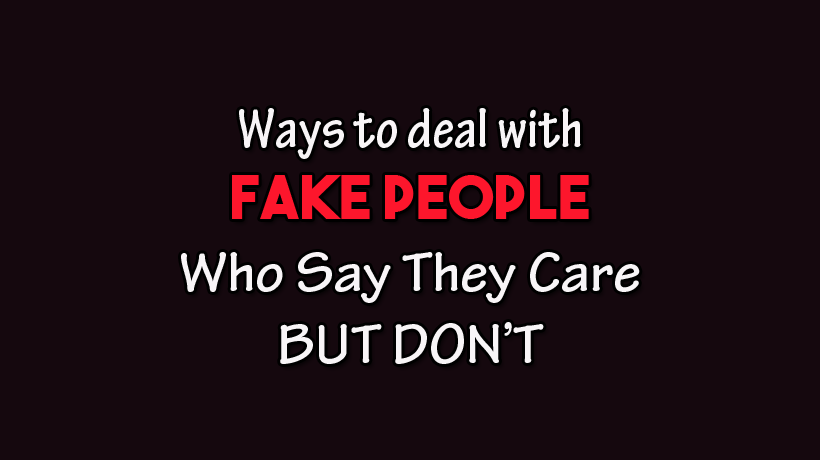You are most likely aware of at least one person who is not authentic in your relationships. Although they say they are interested in you, your well-being, and happiness, they are anything but. The current term for these people is “fake friends.” These people come into your life seeking a relationship with you, but you know that you don’t trust them with your information or problems, nor can you share your good news with them. Fake people are those who consistently pretend to care or try to please others, sometimes at your expense. This type of “friend” can drain your energy with very little return in satisfaction or support.
A relationship with a fake person is actually toxic because they violate the norms and expectations of friendship. Here are some ways to detect that this person is a fake friend.
- They get angry when you don’t agree with their point of view. A fake friend isn’t interested in what you have to say unless you agree with them. They are always in the know and their opinion rules. They have a hard time accepting they may be wrong. A person who habitually tries to tell you that you’re mistaken and lacks empathy when you ask for advice.
- They break promises and always have excuses. This “friend” makes themselves unavailable to you. When you ask them to get together for lunch, shopping, or a movie, they consistently decline. They promise to see you but cancel at the last minute with an excuse that doesn’t hold water. You may look to this person to be there for you when you are feeling low. Still, they always have an excuse or don’t reply to your messages for a day or two, but you notice they are on Twitter or Instagram.
- They rob your energy by using you to vent. It’s all about their needs and will rant about the things that bother them, taking all the airtime. This person may ask your advice but likely doesn’t take it, remaining stuck repeating the same issues. They only see you as a person they can vent to, releasing their stress and frustrations, but don’t make any changes.
- They can’t be trusted to keep your secrets. You may share a difficulty you are having at work, and this person gossips to others about it. They are using your situation as a dramatic “story” to entertain others. This is a betrayal of your trust and only serves their needs to look exciting and informative to other people. Again – a toxic relationship at play.
What can you do to deal with a fake friend? Here are five ways
Cut ties with this person. It might be challenging if you are a colleague at work, or you had some positive experiences with them when you felt respected and close to each other. However, the toxic nature of the soul-sucking experiences let you know that you’d be better off without the relationship. There are people around you who are authentically caring and trustworthy. Put the bulk of your time and attention with people who are worthy of you. You will find yourself feeling safe and happy with their friendship.
Keep a safe distance. If you can’t take a fake person out of your life, rely on your intuition about their toxicity and keep your distance. Trust your instincts by staying\ non-attached in what this person is doing and don’t pay attention to them when they are looking to be in the spotlight or seeking your care and advice. If you have to be with them occasionally, stop being as open to them as you were before. Don’t trust them with your personal stories and secrets, and don’t expect to get any help from them.
Limit your engagement. Could you refrain from asking the fake person questions? Just don’t engage with them. While you may let them speak, please don’t give them the attention they seek, even though they may try hard to get it from you. When they don’t get validation from other people, they are more likely to walk away. You have a choice about cutting off the relationship entirely or giving them what they want from you. Although awkward to cut someone out of your life, when their toxicity is sapping your energy, it is best to consider dropping the relationship.
As a last resort, give them feedback. If you are cornered, and your first three tries aren’t working, you can let the person know what you see in them. Let them know you think they are fake and that you are no longer interested in engaging with them. You can explain the behavior you’ve observed and, using “I” statements, how it affects you. They will likely have comebacks that may hit your heartstrings or raise some “guilt.” Expect some backlash and then move on.
Ask for advice. If this person is a significant relationship in your life, you may wish to seek a professional for assistance in dealing with your feelings regarding this person’s behavior. If you are caught up in your frustration with this person, consider setting boundaries that will contribute to your health, happiness, and well-being.
The insights in this article are, in part, the opinions of the writer.



